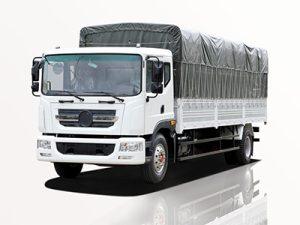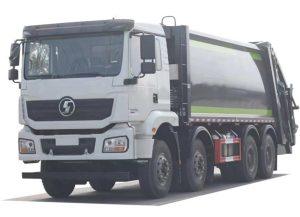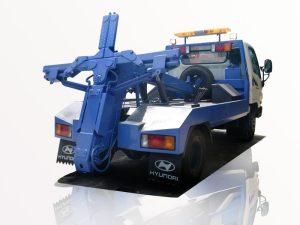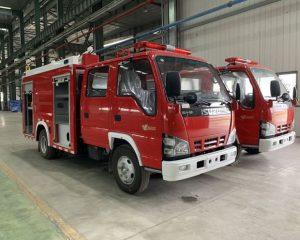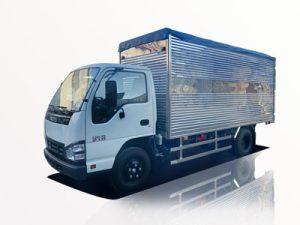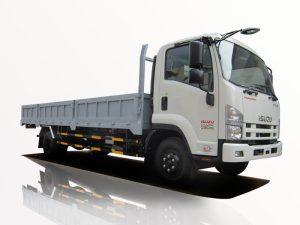Monday to Saturday - 8:00 -17:30
Truck with Water: Everything You Need to Know
When it comes to transporting water, a truck with water capability is an essential vehicle for numerous industries and applications. Whether for agriculture, construction, fire fighting, or landscaping, these trucks are engineered to handle the essential task of delivering water efficiently and safely. In this article, we will explore the various types of water trucks, their features, applications, benefits, and much more.
Understanding Water Trucks
What is a Water Truck?
A water truck is a specialized vehicle used to transport water for various purposes. These trucks are typically equipped with large tanks that can hold thousands of gallons of water, and they can be fitted with hoses and pumps to facilitate effective water delivery and distribution.
Types of Water Trucks
There are several types of water trucks, each suited for different applications. Some of the most common types include:
- Potable Water Trucks: These trucks are designed to transport drinking water and are made of materials that are safe for human consumption.
- Non-Potable Water Trucks: Used for irrigation, construction, or dust control, these trucks carry water that is not suitable for drinking.
- Fire Trucks: Water trucks used specifically for firefighting purposes, equipped with high-capacity pumps and hoses.
- Water Tank Trailers: These are trailer-mounted tanks that can be towed behind trucks or other vehicles.
Key Features of Water Trucks
Tank Capacity
Water trucks come in various tank sizes, typically ranging from 1,000 to 6,000 gallons. The chosen capacity will depend on the intended use.
Material of the Tank
Most water tanks are made from materials like polyethylene, aluminum, or steel. Potable water trucks must utilize FDA-approved materials to ensure safe drinking water transport.
Pumps and Hose Systems
Water trucks are often equipped with powerful pump systems, facilitating the transfer of water to different locations. They may also include hose systems for efficient delivery.
Dump Valves
Many water trucks feature rear or side-mounted dump valves. These allow for easy and efficient unloading of water where needed, which is especially useful in applications such as dust control or irrigation.
Applications of Water Trucks
Agriculture
Water trucks play a crucial role in irrigation systems, especially in areas where water supply is limited. They can be used to transport water to crops, ensuring they receive adequate hydration during dry spells.
Construction
In construction, water trucks are used for dust control, preventing airborne dust particles from affecting work sites and nearby communities. They are essential for maintaining a safe working environment.
Firefighting
Fire departments utilize water trucks to combat wildfires, providing a ready supply of water in areas where standard fire hydrants may not be available. These trucks are equipped with high-pressure pumps to ensure effective firefighting operations.
Lawn and Landscape Maintenance
Water trucks are commonly used in landscaping to transport water for new plant installations and ongoing maintenance, ensuring that lawns and gardens stay lush and healthy.
Mining
Mining operations require significant amounts of water for drilling and processing. Water trucks are essential for transporting water to these often-remote locations.
Benefits of Using Water Trucks
Efficiency
Water trucks can deliver substantial amounts of water quickly, making them efficient for various applications that need immediate access to water.
Cost-Effectiveness
For businesses, using a water truck can be more cost-effective than other means of water delivery, reducing reliance on water delivery services.
Versatility
Water trucks can be adapted for various uses, making them a versatile tool for several industries. Their ability to hold different types of water broadens their application.
Choosing the Right Water Truck
Determining Your Needs
Before purchasing or renting a water truck, assess your specific requirements, including the volume of water you need to transport, the types of water you will carry, and the terrain of the delivery area.
Cost Considerations
The price of water trucks can vary widely based on size, features, and brand. It’s essential to create a budget and evaluate the total cost of ownership, including maintenance and operational costs.
New vs. Used Trucks
Consider whether to buy new or used water trucks. New trucks come with guarantees and the latest technology, while used trucks can significantly lower upfront costs.
Maintenance of Water Trucks
Regular Inspections
Conduct regular inspections of the truck and tank to identify wear and tear. Check for leaks, corrosion, and any signs of damage.
Cleaning the Tank
It’s vital to keep the water tank clean, especially for potable water trucks. Regular cleaning helps prevent contamination and ensures water quality.
Maintaining the Pump System
Ensure that the pump system is functioning correctly. Regular servicing will enhance the lifespan and performance of the water truck.
Tips for Operating a Water Truck
Safety Precautions
- Wear appropriate safety gear, including gloves and visibility vests.
- Ensure that the route for water delivery is safe and accessible.
- Be cautious of weight limits when the truck is fully loaded.
Effective Water Delivery
Utilize the pump effectively to minimize spillage during water delivery. Proper techniques can maximize efficiency and reduce waste.
Training for Operators
Ensure that all operators are adequately trained. They should understand the truck’s features, safety protocols, and delivery methods.
FAQs about Trucks with Water
1. What is the average cost of a water truck?
The cost can range from $30,000 to $150,000, depending on size, features, and whether it’s new or used.
2. Can water trucks transport drinking water?
Yes, but they must be designed specifically for potable water, utilizing FDA-approved materials.
3. How often should I clean a water truck’s tank?
It is recommended to clean the tank every few months, or more frequently if transporting potable water.
4. What should I do if my water truck has a leak?
Stop using the truck immediately and consult a professional mechanic to assess and repair the damage.
5. Are water trucks customizable?
Many manufacturers offer customization options to fit specific needs, including tank size, pump capacity, and hose systems.
6. What weight limits should I consider when filling a water truck?
Check the truck’s specifications for load capacity, and remember that water weighs approximately 8.34 pounds per gallon.
The Future of Water Truck Technology
Technological Advancements
As the industry evolves, water trucks are incorporating advanced technologies, including GPS for route optimization, telemetry for monitoring water usage, and eco-friendly materials to reduce environmental impact.
Environmental Considerations
Focusing on sustainability, newer models aim to reduce emissions, optimizing fuel use while transporting water.
Regulations and Compliance
Keeping abreast of local and federal regulations concerning water transport is essential for compliance, particularly for potable waters.


